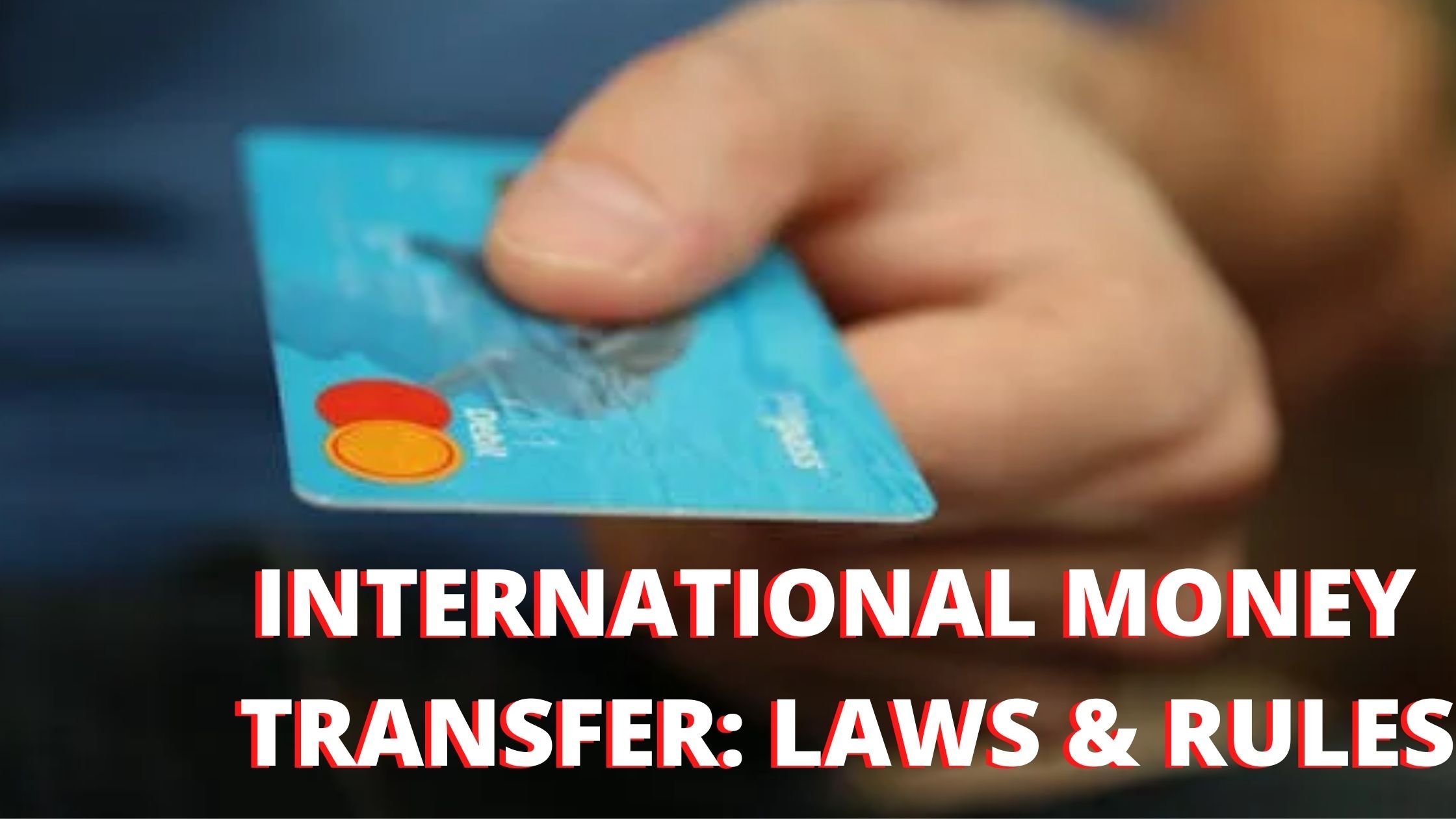INTERNATIONAL MONEY TRANSFER: LAWS AND RULES
In the contemporary era of globalization and digitalisation, there is a growing trend of international trade and transactions. It has led to a rapid increase in money transfers internationally. Other factors like global commercial services, international production of goods and services, migration to foreign countries and overseas tourism have also contributed to this growth. People working overseas need to be able to send their earnings to their family members. These money transfers are regulated by strict rules as it involves huge amounts of cash and to prevent illegal transfers and money laundering. To prevent transfer of laundered money to offshore untraceable accounts, countries have placed stringent transfer rules.

INTERNATIONAL MONEY TRANSFER: LAWS AND RULES
In the contemporary era of globalization and digitalisation, there is a growing trend of international trade and transactions. It has led to a rapid increase in money transfers internationally. Other factors like global commercial services, international production of goods and services, migration to foreign countries and overseas tourism have also contributed to this growth. People working overseas need to be able to send their earnings to their family members. These money transfers are regulated by strict rules as it involves huge amounts of cash and to prevent illegal transfers and money laundering. To prevent transfer of laundered money to offshore untraceable accounts, countries have placed stringent transfer rules.
The cross-border transactions are not only governed by strict rules and regulations but the respective money transfer companies and banks also have their laws to protect the parties involved in such transactions. A growing number of scandals and terrorist attacks have led to these laws being more rigid and stringent. People who transfer money abroad have a number of options to choose from, however, they have to keep in mind certain laws and rules to prevent any sort of cancellation or delay.
Everyday, there are millions of international transactions taking place. These transactions can take place between individuals, companies, bank institutions or government agencies. All countries have their specific rules and regulations for governing these transactions. The Reserve Bank of India is obligated to fulfil this duty in India. The umbrella legislation regulating the inward and outward remittances in India is the Foreign Exchange Management Act, 1999 (FEMA). The purpose of this legislation is:
-
To ensure that the money transferred from India does not have any illegal motive and does not fund any illegal act
-
To help the Reserve Bank of India in stabilization of local currency markets so that it does not have any negative consequences on the economy
Certain mandatory provisions that have to be kept in mind before making money transfers internationally are:
-
IDENTITY PROOF: Unlike the usual domestic money transfer, the internationals transfers require verification of the identity. The laws require photo identification of the person while transferring money through any bank or money transfer service provider. The documents usually required to establish identity are, a valid driver’s license, passport, etc. along with proof of address. Money transferring organizations will require additional documents and will also conduct a phone verification if money is transferred over the internet.
-
RULE FOR ONLINE TRANSFER: Although online money transfers are quick and easy, they involve a lot of security procedures. Most scandals and scams of money laundering are accomplished through online transfers and hence the banks have become stricter with their rules and regulations. Firstly, one has to set up an account and only after that account has been verified can he/she transfer money online. Once the transfer procedure is complete, the recipient has to collect the money in person for legal verification purposes. The banks do not transfer the money to the recipient's account directly. Individuals sending and receiving money are recorded and tracked by their transfer control numbers.
-
TRANSFER AMOUNT LIMIT: Banks, money transferring organisations and other financial institutions that provide international money transfer services have set certain limits on the amount that can be transferred. The maximum limit of online transfers is very low, however, people can choose to make multiple transactions. As an additional safety measure, most banks do not accept cash as a method of payment for money transfers. Also, money transfer agencies and banks are required by law to charge a fee for transferring the money. People can transfer money only if they have paid this fee.
-
STORING USER DATA: The laws and legal obligations require the financial institutions providing international money transfer services to store user data and record all relevant information about each transfer. The transaction number, receivers’ name, senders’ details and all other transaction details must be recorded and stored carefully. This helps the organisations to keep track of the transfers and prevent money laundering.
In India, the transfer of money involves two processes, inward and outward remittances. Inward remittances refer to the money being transferred from abroad to India and outward remittances mean money being transferred from India to a foreign country About 12% of all worlds’ remittances are to and from India as per the Ministry of Overseas Indian Affairs making India the largest remittance recipient globally. The RBI has set a maximum limit of 2500USD for remittances to India. It is essential to pay attention to the money exchange rates imposed by both the countries involved in any transaction.
BY:-
Ridhika Kapoor












